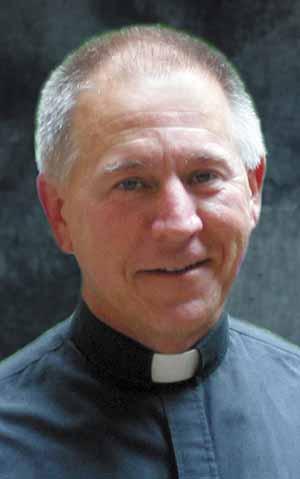
By Fr. Bud Grant
Environmentalist Dr. George Monbiot made news recently by concluding that nuclear energy isn’t so bad. The tragedy in Japan is awful, but, “if that is the worst that nature can do then fears about nuclear power have been exaggerated.”
The alternative is worse: coal. The Department of Energy (DOE) website is not reassuring: about emission-free coal plants it uses words like “are being developed,” “of the future,” and “pioneering.” In the meantime, democratization movements in the Middle East are causing oil prices to rise, in part because of market fears (or hopes?) of reduced output. To keep its people from the streets this Arab spring, Saudi Arabia is spending $35 billion on social programs. The cost is passed on to oil consumers. We pay at the pump for a “bread-and-circuses” strategy to seduce human rights activists.
In the meantime, more people are consuming more energy per person. In 2000, global consumption was 396.6 quadrillion British thermal units (btu). In 2007 it was 483.6. Per capita, Americans consume 337.1, against a global average of 73.1. Petroleum provides 37 percent of the total, natural gas 25 percent, coal 21 percent, nuclear about 8 percent and all alternative energies combined about 8 percent. Maybe Monbiot is regrettably right. We need more energy.
According to author Taleb Nassim, we believe we live in a world where probabilities — statistics — rule. But in fact, we live in a world where dramatic and unexpected events — like the sand in an hour glass suddenly shifting — cause everything to change quickly. This means that the world is a lot less predictable, and much more frightening than we want to admit. To avoid the “crisis paralysis” triggered by fears of all that could possibly go wrong, we have come to rely on prognosticators — secular seers — for probability statistics and when they tell us that something is a “low probability disaster,” to borrow from journalist Steven Pearlstein, we feel free to act.
Assured that, in Japan, the odds of a 9.0 earthquake causing a three-story-tall tsunami that wipes out the electric grid that supports a nuclear reactor is “low probability,” we build one. We build six.
What, then, do we do? We need more energy. Do we choose CO2 emitting, environmentally destructive, or dangerous sources? To be blunt: do we have to endure the occasional nuclear melt-down as preferential to even worse alternatives?
The Gospel is not subject to a cost-benefit analysis. Christ does not ask us to weigh probable advantage vs. probable catastrophe before acting. Examine those enigmatic Lenten passages: “Unless you pick up your cross every day and follow me, you are not worthy of me,” or “the one who would save his life will lose it, while the one who loses it will save it.” Christ calls us to follow in his footsteps, though they lead to Golgotha. Christians are required to suffer — not in punishment (He did not come to judge); not to achieve penance (that is gratuitous); but simply because a disciple will suffer for the sake of that which Christ loves. To be a Christian is to be Simon of Cyrene, sharing the cross of the innocent victim.
The victims of our ravenous appetite for energy and the pursuit of increasingly risky behavior to acquire it include the world’s poor who consume the least but pay the heaviest price. God’s creation is also a victim. Simply put, we ought not destroy the health of this planet in order to support our consumption habit. Since suffering is an inevitable reality for the earth, its people and its creatures, that suffering ought to be more justly distributed. Rather than more energy, we need to consume less energy. We can do this, as we proved during the recession; we might want to, since consumption doesn’t make us particularly happy. We ought to because suffering for love, not extracting for comfort, is the defining characteristic of disciples of the Nazarene.
(Father Bud Grant is an assistant professor of theology at St. Ambrose University in Davenport.)








